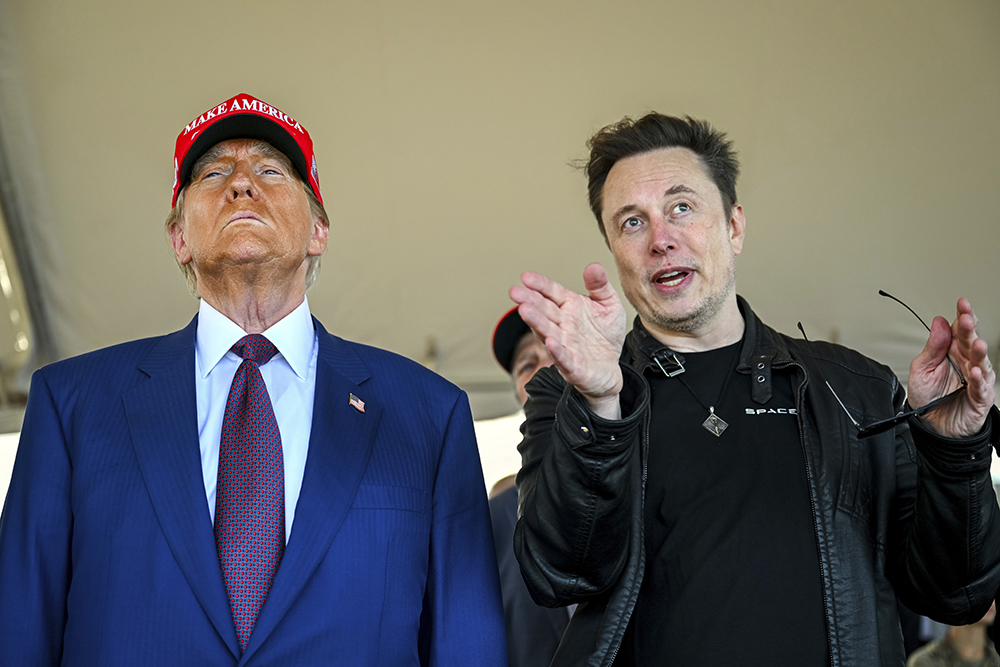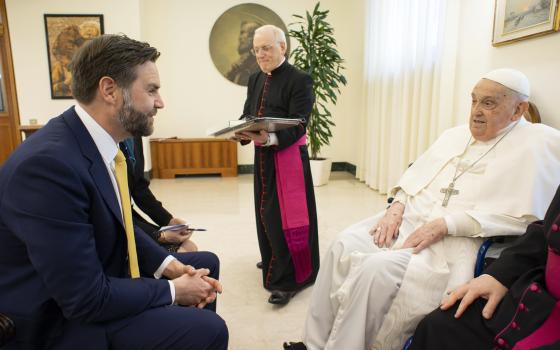
(Unsplash/Prateek Katyal)
Rarely am I considered a trendsetter, nor someone on the leading edge of anything resembling a cultural shift. But as I look back to this time last year when I decided to leave the social media platform known as "X" (formerly Twitter), I can't help but think I made the right decision and was unintentionally ahead of the curve.
In recent months, millions of people have left the platform, some of whom are seeking alternatives like Meta's Threads or Bluesky. According to NBC News, on Nov. 6, the day after the election, X experienced the largest departure of users since Elon Musk purchased the company in 2022.
Many of those who left shared that they were fed up with the growing toxicity of the website, with some experiencing increasing harassment. Others expressed serious concerns about X's new privacy policy, which went into effect on Nov. 15 and insists that all users must agree to let their posts on the site be used for training artificial intelligence programs, including X's own system known as "Grok." Before this policy revision last month, X users could elect to opt out of participating in this program.
For me, the final straw was the extreme transphobia, racism, sexism and xenophobia that had seemingly become the identity of the platform in the last year. Sure, there had always been bad faith actors around, but since Musk's purchase of the site and his decisions to highlight the worst of political ideologies and dehumanizing rhetoric through selected filters, algorithms and bots, X became a cesspool of hate and disrespect. I could no longer justify sticking around. So I left.
How have I felt since? In a word: wonderful.
Advertisement
Last year I shared that in Lent 2022 I embraced a "Twitter fast" and that experience shaped my usage of the platform after I returned. It was a small foretaste of what I would experience in 2024 being off of X entirely.
We have had a rollercoaster of a year, with wars raging in Eastern Europe, the Middle East and Africa; a deeply polarized country that experienced a tumultuous presidential election and outcome; the persistence of global climate change and the ongoing politicization of that disturbing reality; revelations of the most depraved human actions, such as what was witnessed in the French rape trial; and so many other sources of grief and anxiety. I am grateful not to have been confronted by a social media newsfeed that would have only made those realities feel worse.
It feels cliché to admit, but this year has been my happiest in a while. This may be tied, in part, to the peace I experienced after serious discernment about my vocation as I embraced the Holy Spirit's call to transition away from religious life. But I am also grateful not to have been distracted in my prayer, conversations and reflection this year by the wretchedness of the X echo chamber. I continue to read the papers every morning, attend to the breaking news alerts on my phone and examine reported pieces in magazines and online. But the distance from X removed the artificial sense of immediacy that leads to heightened anxiety and stress.
Admittedly, leaving a social media platform — even one as terrible as X — is not a panacea for individual or collective problems. My departure from X did not save a life or cure a disease, nor did it end war or resolve any interpersonal strife. But like Christian ascetical practices, where one intentionally denies oneself of a comfort or pleasure for a higher purpose, my intentional act of departure from X afforded me new perspective and clarity about what is "real" — and what really matters.

President-elect Donald Trump listens to Elon Musk as he arrives to watch SpaceX's mega rocket Starship lift off for a test flight from Starbase in Boca Chica, Texas, Nov. 19, 2024. (AP, File/Brandon Bell)
In the whirlwind of the fast-paced and vitriolic context of X, it can be difficult to distinguish reality from falsity, to ascertain what is actually important and what is just trolling or algorithmically driven outrage. In the virtual world, dwelling in isolating regions of what Pope Benedict XVI famously called the "digital continent," it is easy to lose perspective.
I am reminded of a 1966 essay by Fr. Thomas Merton titled, "Events and Pseudo-Events: Letter to a Southern Churchman," which was published in his book Faith and Violence: Christian Teaching and Christian Practice. Writing within the context of America in the 1960s and focused on the way media (then understood as newspapers, radio and television) presented the "reality" of events like the Civil Rights movement or the war in Vietnam, Merton was skeptical about uncritical reception of certain presentations of what was happening in the world. He called for distance and reflection in all matters, believing, along with the Second Vatican Council, that we need to interpret the signs of the times in the light of the Gospel (Gaudium et Spes, no. 4).
Merton opens his essay with the declaration: "I have publicly stated that I would no longer comment on current events. People ask why. There are many reasons, and I might as well say at once that they are reasons for which may possibly be valid for me only, not for others." He goes on in the essay to talk about how he refrains from trying to know about timely events "in their fresh condition as 'news' " and instead prefers a little time and space for deeper analysis and reflection. He adds:
In this perspective you are perhaps able to distinguish the real happening from the pseudo-event. Nine tenths of the news, as printed in the papers, is pseudo-news, manufactured events. Some days ten tenths. The ritual morning trance, in which one scans columns of newsprint, creates a peculiar form of generalized pseudo-attention to a pseudo-reality. This experience is taken seriously. It is one's daily immersion in "reality." One's orientation to the rest of the world. One's way of reassuring himself that he has not fallen behind. That he is still there. That he still counts!
If what Merton describes in the analog age of news media was true in the 1960s, then this caution is much more relevant for us in our digital age. I do not believe the only choice we have is between willful ignorance or hyper-attention to social media platforms. Both extremes can be dangerous, or even sinful.
What I do believe is that a third approach is possible and was modeled well by Merton in his own time. We can remain knowledgeable and engaged with the world around us without commenting on every "current event," especially when such events may in fact be pseudo-events created in the distorted echo chambers of the internet. The signs of the times are certainly in need of interpretation in the light of the Gospel, but I no longer think that authentic signs can be found in places like X.





